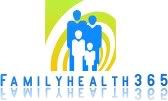An assistant professor of medicine, and associate director of the Mount Sinai Hospital echocardiography laboratory, Dr. Lori Croft is a cardiologist who specializes in pregnancy and the heart.
Who's at risk
Although pregnancy causes no cardiac problems for the vast majority of women, certain groups of women have an elevated risk of heart complications during pregnancy.
"A woman who has a history of heart disease, heart murmur, rheumatic fever or high blood pressure is potentially at risk during pregnancy," says Croft. "If you fall into one of these groups, you should talk with your doctor before becoming pregnant."
Overall, less than 1% of pregnancies are complicated by heart disease.
"Far and away the majority of women will have no cardiac issues and will not need to see a cardiologist during pregnancy," says Croft. "However, though rare, heart problems when present can affect anyone — age and ethnic background aren't a factor."
In particular, women with certain complex congenital heart problems have an elevated risk. "For some rare conditions, pregnancy is not advised at all," says Croft.
In a very small number of cases, previously asymptomatic women discover they have a heart defect when it shows symptoms for the first time due to the additional stress of pregnancy.
There are three heart-related conditions that are most likely to develop in otherwise healthy women during pregnancy: heart murmur, arrhythmia and hypertension.
"Women often develop a murmur from the extra blood flow in the heart, but only rarely is it pathologic," says Croft. "An arrhythmia is a heartbeat that may be too fast or too slow, regular or irregular, and usually no treatment is required."
The most common cardiac complication during pregnancy is hypertension, or high blood pressure. "This affects about 8% of all pregnancy women, most often after the 20th week," says Croft.
"High blood pressure during pregnancy can affect the supply of oxygen to both the mother and the baby, putting them both at risk," she says. If you develop hypertension during pregnancy, the most serious form it can take is pre-eclampsia, which requires immediate attention because it can be life-threatening. Certain risk factors place you at increased risk of developing hypertension during
pregnancy and pre-eclampsia.
Those most at risk are first-time mothers, women carrying multiple babies, teenage mothers, women older than 40 and women who had high blood pressure or kidney disease before pregnancy.
Signs and symptoms
Pregnancy is a physiological state that places a burden on the heart. "The heart has to work harder for nine months," says Croft. "A pregnant woman's heart pumps 30%-50% more blood than before pregnancy."
While a healthy heart can handle this extra load, a diseased heart can't always cope. "Different kinds of heart diseases may cause different problems during pregnancy," says Croft.
Even normal pregnancies produce cardiac and respiratory symptoms that can mimic more serious complications. "So it's vital to differentiate normal signs and symptoms of pregnancy from a true problem during pregnancy," says Croft.
Symptoms that can arise during a normal pregnancy include fatigue, shortness of breath, swelling in lower extremities, dizziness, lightheadedness, palpitations and increased heart rate.
"Pregnant women should tell their physician if they experience any of these symptoms, so their physician can determine if any evaluation is needed," says Croft.
It's good to keep an eye out for the symptoms of a significant problem. The warning signs for pre-eclampsia include visual disturbances, severe headaches, abdominal pain and lower-extremity swelling. Arrhythmias can cause palpitations, dizziness, fainting, shortness of breath and chest discomfort.
Traditional treatment
Providing medical care for pregnant cardiac patients poses extra challenges. "Some patients may only require reassurance, while some more require in-depth counseling," says Croft. "And if you take medications, it's key that your doctor advises you about which are best for pregnancy."
Good medications are available for treating chronic and gestation hypertension, though the only treatment for pre-eclampsia is delivering the baby.
Only in rare cases do pregnant patients require cardiac surgery.
"Some women may be surgical candidates because they have acute aortic dissection, an acute regurgitant valve or severe valvular stenosis," says Croft. "But a much more common part of my job is reassuring women with low-risk cardiac pathology about their condition, thus eliminating unnecessary anxiety."
Research breakthroughs
Thanks to surgical and medical management advances, many women with congenital heart disease now live to childbearing age and can successfully carry a pregnancy.
"The medical care of a pregnant cardiac patient is a considerable challenge," says Croft. "But with good communication between obstetricians and cardiologists, we can successfully manage care for these patients despite their elevated risk."
Questions for your doctor
A great question for every woman to ask, is "Do I have any restrictions during my pregnancy?" If you have a diagnosed heart problem, ask: "Is my child at risk to inherit my heart condition?"
Another good question is, "Am I at increased risk of C-section?
What you can do
Make sure that your doctor knows about any medications you're taking, including over-the-counter ones. If you have a known heart problem, talk to your physician going through pregnancy.
Watch your blood pressure.
Dr. Lori Croft advises patients to have their blood pressure checked often throughout pregnancy.
Stay healthy.
The rules everyone knows about are indeed essential: Don't drink or smoke, eat healthy and exercise if your doctor allows it.
nydailynews.com





















